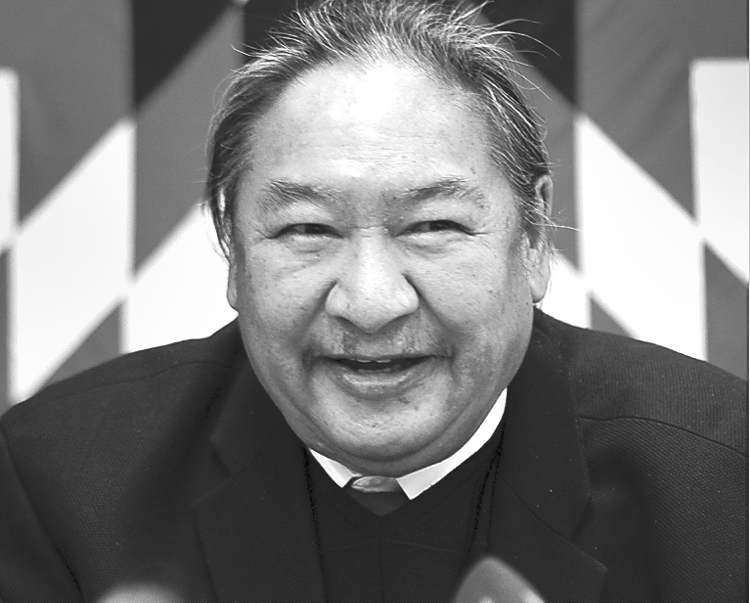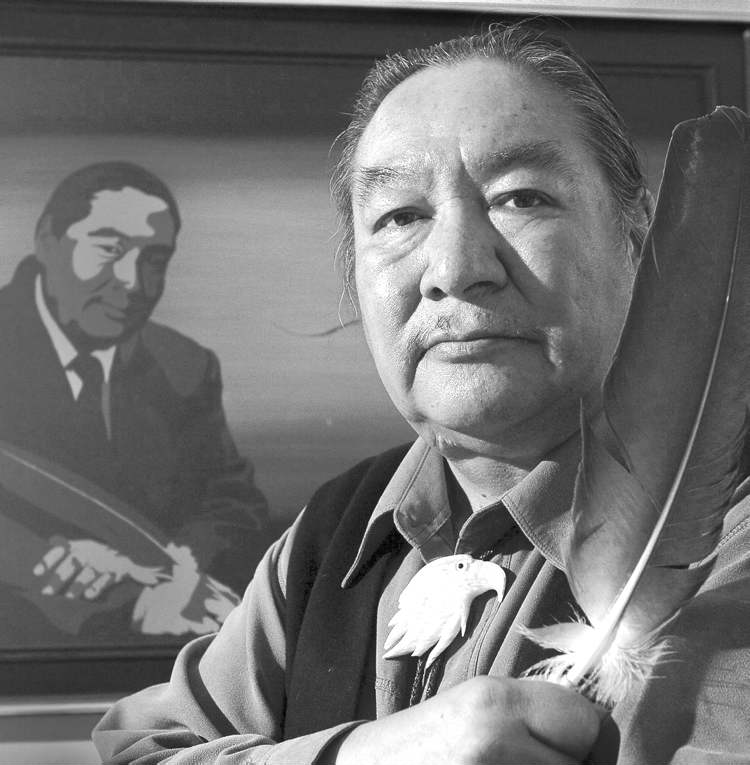The humble man who said ‘no’
He was a lot more than MLA who killed Meech Lake
Advertisement
Read this article for free:
or
Already have an account? Log in here »
To continue reading, please subscribe:
Monthly Digital Subscription
$1 per week for 24 weeks*
- Enjoy unlimited reading on winnipegfreepress.com
- Read the E-Edition, our digital replica newspaper
- Access News Break, our award-winning app
- Play interactive puzzles
*Billed as $4.00 plus GST every four weeks. After 24 weeks, price increases to the regular rate of $19.00 plus GST every four weeks. Offer available to new and qualified returning subscribers only. Cancel any time.
Monthly Digital Subscription
$4.75/week*
- Enjoy unlimited reading on winnipegfreepress.com
- Read the E-Edition, our digital replica newspaper
- Access News Break, our award-winning app
- Play interactive puzzles
*Billed as $19 plus GST every four weeks. Cancel any time.
To continue reading, please subscribe:
Add Free Press access to your Brandon Sun subscription for only an additional
$1 for the first 4 weeks*
*Your next subscription payment will increase by $1.00 and you will be charged $16.99 plus GST for four weeks. After four weeks, your payment will increase to $23.99 plus GST every four weeks.
Read unlimited articles for free today:
or
Already have an account? Log in here »
Hey there, time traveller!
This article was published 19/05/2013 (4530 days ago), so information in it may no longer be current.
OTTAWA — The man who said “no” and changed the course of Canadian history has died.
Elijah Harper, former chief, MLA and MP, died in Ottawa early Friday morning from complications due to diabetes. He was 64.
“It’s a sad day indeed,” said Manitoba Aboriginal Affairs Minister Eric Robinson, who knew Harper for years. “Elijah was a good person, a person of tremendous humility.”

His most famous and longest-lasting legacy came in June 1990, when he held up an eagle feather in the Manitoba legislature and said “no” to allowing the Meech Lake accord to come to a vote in the house. The vote required unanimous consent and Harper’s opposition is recognized as one of the things that killed the constitutional amendments being pushed by then-prime minister Brian Mulroney.
“The problem is we, as aboriginal people, have not been dealt fairly, and also the governments have not dealt with the aboriginal issues the way we would like them to have,” Harper said in an interview with CBC’s As It Happens during the Meech debate in June 1990. “I think we have always been dealt with as second-class citizens and aboriginal nations are not a priority for first ministers and governments across this country.”
He was named The Canadian Press newsmaker of the year in 1990 for his vote and in 1991 received the Stanley Knowles Humanitarian Award. The moment was later immortalized in the CTV movie Elijah, released in 2007.
Harper was a chief, a husband and father, an MLA and MP, a community organizer and an international humanitarian who won dozens of awards for his work.
Harper’s wife, Anita Olsen Harper, his children, Bruce and Holly, and his stepchildren Karen Lawford and Dylan, Gaylen and Grant Bokvist, released a statement mourning his passing.
“Elijah was a wonderful man, father, partner,” they said. “He was a true leader and visionary in every sense of the word. He will have a place in Canadian history forever for his devotion to public service and uniting his fellow First Nations with pride, determination and resolve. Elijah will also be remembered for bringing aboriginal and non-aboriginal people together to find a spiritual basis for healing and understanding. We will miss him terribly and love him forever.”
Jennifer Wood, a longtime family friend who worked for Harper for 10 years, said there were too many memories flowing through her head Friday. “He was probably the kindest person I know,” she said.
Wood’s husband, Darcy Wood, said Harper’s death was unexpected.
Harper had diabetes and about six years ago was diagnosed with kidney failure, for which he began undergoing dialysis. Shortly before Christmas, he underwent a kidney transplant and friends and relatives believed he was doing better until Thursday, when he was rushed to the hospital in Ottawa. He died around 4:30 a.m. Winnipeg time Friday of heart complications related to his diabetes and kidney issues.
News of Harper’s death hit fast and hard Friday, and condolences and words of disbelief flowed across social media.
Justice Murray Sinclair, head of the Truth and Reconciliation Commission, said tears flowed and a smudging ceremony was held during the TRC hearings in Williams Lake, B.C.
Harper spent eight years in three different residential schools in Manitoba.
He was born March 3, 1949 in Red Sucker Lake, the second of 14 children. He was raised mainly by his grandparents and spent much of his childhood on the traplines.
He attended the University of Manitoba, where he and other future leaders such as Ovide Mercredi and Phil Fontaine formed a native association. One of his first political actions was to force the engineering association to apologize for a satirical newspaper with photos of inebriated aboriginals. He left university before graduating and returned to Red Sucker Lake, where he was elected the chief at age 29.
In 1981, he became the first treaty Indian to be elected to the Manitoba legislature, representing the riding of Rupertsland for the NDP.
“It fascinated me in terms of trying to achieve things. It’s one way of trying to get things done rather than sitting back,” Harper told the CBC in 1982 during an interview about what it was like to be the only aboriginal person in the legislature and the pressures it brought.

In 1986, he joined the provincial cabinet, first as minister responsible for Native Affairs and later as minister of Northern Affairs.
He ran into some trouble in 1987 when a drunk-driving accident forced him from cabinet. He pleaded guilty, enrolled in an alcohol-rehabilitation program and remained as the MLA for Rupertsland
In 1992, he resigned his seat and in 1993 ran for the federal Liberals in the Churchill riding after trying unsuccessfully to run for the NDP. He held Churchill for just one term before he was defeated in 1997 by the NDP.
He spent several years afterward as the commissioner of the Indian Claims Commission.
In recent years, he advocated for Ottawa to get rid of the Indian Act, contending it treated indigenous people “like children.”
He also worked internationally, taking several trips to Taiwan, where indigenous groups sought his counsel. In recent years, he has done work for the East Side Road Authority, helping to bridge differences between the provincial government and First Nations on the east side of Lake Winnipeg.
“I don’t think we would have been able to secure any of this without his input,” Robinson said.
Robinson said there was a certain irony that Harper ended up diagnosed with kidney failure, since he spent a lot of time advocating for more dialysis treatment centres in the north. First Nations in Manitoba have among the highest rates of diabetes in the world, and one of the most pressing complications is kidney disease.
Former national chief Phil Fontaine, who first met Harper at the University of Manitoba, said his friend was “humble” and had “a quiet determination. He wasn’t a bitter individual. His whole public life was about our communities.”
Harper’s Meech Lake vote made him not only a national newsmaker but an international icon for indigenous peoples. Fontaine said a few years ago he was in a remote Mexican village “and there was a huge poster of Elijah Harper there.”
“He was an indigenous hero.”
mia.rabson@freepress.mb.ca


